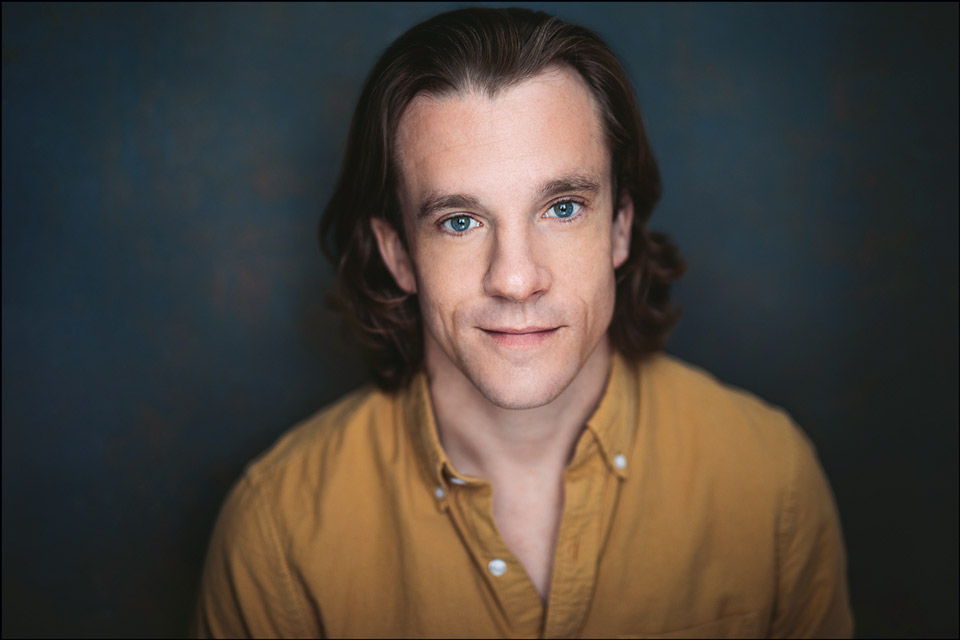This fall here at Northeastern, the Department of Theatre will be presenting How I Learned to Drive by Paula Vogel, which is running from October 11-21. As rehearsal gets under way, the Department of Theatre will be bringing in intimacy coach Claire Warden to deal with the themes in the production, which include trauma and childhood abuse. Intimacy coaching is a fairly new field in theatre and Professor Hinson is eager to learn and possibly teach more about it here at CAMD. Hinson believes firmly that theatre should ensure safety, understanding, and comfort to the actors, especially in the wake of movements like #MeToo, which have pointed out ongoing injustices in the arts.
Additionally, this year, Professor Hinson is teaching both “Improvisation” and the very first “Designing Combat for the Stage” class offered at Northeastern, where students have long expressed their desire to know more about the technique.
“I love teaching these courses,” Hinson said. “We have a lot of fun, and we take apart the psychology of being in the moment and being present. I find that fascinating to explore with students.”

He notes that being present is extremely important for a successful actor, as moments change each time they are created on stage and one needs to be prepared for anything. In the spring semester, Hinson is anticipating teaching movement and theatre introduction courses.
When we asked what he was looking forward to the most about teaching a new class, there were too many positives to name just one.
“I am looking forward to at least two things,” he described. “One is getting the opportunity to share a very specialized form of storytelling with my students. I am looking forward to seeing what the students do with the new skill sets. I haven’t worked with them on stage combat outside a production as of yet. A lot of the elements of ‘good’ stage combat mirror what ‘good’ acting should be. I am hoping that those principles reinforce one another and help [the students] be more dynamic, engaging, and healthy artists.”
He then laughed, and added, “two, it’s also just so fun to do! Students here desire more knowledge, and it’s my desire to give them that. I am thankful and grateful that we have the opportunity. These skill sets are increasingly important. These days, every theatre experience has an element of violence- a grab, or a fall. People are familiar with how, in musical theatre, every time they sing it’s because words are no longer enough. This experience is the same with a fight. For every kind of theatre artist – be it actors, directors, choreographers, or tech, it’s important to have this skill set.”
Currently, outside of Northeastern, Professor Hinson is also designing violence for a production of Macbeth at the Actors’ Shakespeare Project, which is being performed September 26 – November 11. He hopes to bring his experiences working on this production to his new Stage Combat class so that his students will be able to follow his process from inception to execution, and highlight how violence can reinforce and enhance a performance.
Hinson will also be in two shows next season.
The first, Miss Bennet: Christmas at Pemberley, is by playwright Lauren Gunderson, who is currently the most produced playwright in the United States. He will be performing at Merrimack Repertory Theatre in Lowell, MA. The play features many characters from Pride and Prejudice, but envisions a new story with focus on the female characters. Hinson will be playing Mr. Darcy. The production will go up November 28 and run through December 23.
He will also be performing in Central Square Theatre’s production of Photograph 51 by Anna Ziegler. The play is about a scientist named Rosalind Franklin, whose work led to discovery of the structure of DNA. Usually the names Watson and Crick are associated with the discovery of DNA, but in reality, Franklin was actually behind the successful photography of DNA. Unfortunately she got no credit because she was a woman. Fellow Northeastern Theatre faculty member Marianna Bassham, Hinson’s wife, will be playing Rosalind. Professor Hinson looks forward to the chance to collaborate with her and to give life to an important and silenced part of history. He will be playing Don Caspar, an American doctoral student who works with Rosalind. The production will be running from March 14 – April 14.
We look forward to seeing what Professor Hinson and his students create in their classes this year, and are pleased to see such a capable artist bringing his experiences to his students!

